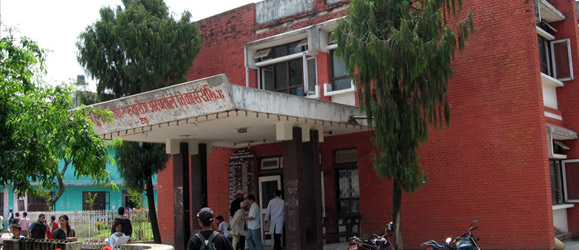Valley at high risk of dengue
Kathmandu, October 6
Twelve dengue patients are undergoing treatment at Sukraraj Tropical and Infectious Disease Hospital, Teku, with most of the patients referred from Dhakre, Dhadingbesi and Naubise of Dhading district.
The patients had a low white blood cells count and their blood test report showed that they had contracted dengue. As per data provided by STIDH, 78 dengue cases have already been treated in the hospital over the last two months and the number is increasing at an alarming rate.
“We have advised the hospital to treat dengue patients keeping them under mosquito nets to ensure that the disease does not break out and get spread in the capital,” informed Dr Guna Nidhi Sharma, epidemiology section chief at EDCD.
Though nets have been provided to the hospital by EDCD, they have not been used in the course of treatment of dengue patients. “If this situation continues, mosquitoes around might get infected and transmit the disease to more people,” informed Dr Anup Bastola, Consultant Tropical Medicine Physician at the hospital.
As Dhading is near to Kathmandu and relatively more people from the district reach Kathmanu each day, there is a high risk of dengue infections in Kathmandu, according to doctors.
Dengue is a vector-borne disease transmitted by the bite of a mosquito infected with dengue virus serotypes. The Aedes aegypti mosquito is the primary vector of dengue in Nepal. The virus is transmitted to humans through the bite of infected female mosquitoes. As the Aedes mosquito is found in Kathmandu too, there are high risk of transfer of this disease in the city.
After virus incubation for four to 10 days, an infected mosquito is capable of transmitting the virus for the rest of its life.
People suffering from dengue have symptoms like high grade fever, severe headache, retro-orbital pain (pain behind the eyes), pain in muscles, bone pain, (break bone fever) rashes and back pain, among others.
Aedes aegypti mosquito lives in urban habitats and breeds mostly in man-made containers. Unlike other mosquitoes this mosquito is a day-time feeder. Its peak biting periods are early in the morning and in the evening before dusk. Female mosquito bites multiple people during each feeding period. Severe dengue is potentially a deadly complication due to plasma leaking, fluid accumulation, respiratory distress, severe bleeding, or organ impairment.
To prevent the infection, doctors have advised to keep environment clean, destroy and search mosquito breeding areas, use nets and apply mosquito repellents and do not let water deposited in the tyres and the patients must be kept under the nets during their treatment.
Last year, the disease was reported in more than 1,500 people across the country.






